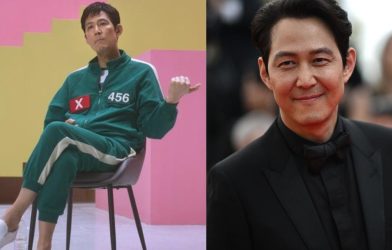Money being at the heart of commercial decision making is neither revelatory nor necessarily evil. The biopic trend does feel inherently conservative, though, when paired with what is happening in the music industry. The past decade of streaming has placed increased importance on labels back catalogs. Greatest Hits albums dominate the charts and one well-placed Stranger Things sync can send a song like Kate Bush’s “Running Up That Hill” stratospheric.
Moments like that are hard to manufacture. Not everyone can drink cranberry juice while listening to Fleetwood Mac and introduce “Dreams” to a whole new audience. A Fleetwood Mac movie is much easier to wish into existence, though. A company like Hipgnosis, who bought the rights to Christine McVie’s songs in 2021, would certainly be keen to see the drama behind Rumors make it to the big screen. In a time when establishing new artists is harder than ever, it’s worth pushing back against that which further reinforces the status quo.
The problem in making a biopic with any real grit, ultimately, is access to music rights. Any biopic without the songs made by the artist is going to struggle, yet gaining the rights means going into business with the artist (or estate) whose opinion on the end product is the most subjective. It’s an impossible conundrum and something that feels like an asterisk on the genre as a whole.
Some degree of independence is vital for a great biopic, as is a subject willing to be shown in an unflattering light should their story require it. 24 Hour Party People doesn’t paint Manchester music impresario Tony Wilson as a saint, but it captures the energy of the city in the early ‘90s with a real verve. Joaquin Phoenix’s Oscar-nominated depiction of Johnny Cash, meanwhile, is frank about the country singer’s substance abuse and the corrosive effect it had on his family. Todd Haynes’ excellent 2007 Bob Dylan biopic I’m Not There takes things to a more experimental place, casting multiple actors to play him, including Cate Blanchett. Haynes recognizes that what makes an artist unique is their aura, not the details of their Wikipedia page.
This is what feels so uninspiring about the current moment: audiences are being served up simplified life stories of artists whose narrative is already written in the pop culture landscape. There are people with knotty realities that screenwriters would love to write — think John Lennon or the late Winehouse — but the chances of seeing those unflattering moments make it onto the screen feel limited when a smoothed-out version is beneficial to the bottom line numbers and egos involved.
The route to this point hasn’t come out of nowhere. Looking back over the music documentaries of the past decade is to see a redefinition of the vanity project.. Does a big tent pop album even exist if it doesn’t come with a doc executive produced by the artist? Ask Beyonce, Taylor Swift, or Billie Eilish. This desire to shape one’s own narrative extends out to social media, which has replaced traditional media when it comes to communicating a narrative and speaking directly to fans. It was perhaps inevitable that biopics would follow suit.
If the wave of modern music documentaries greased the wheels for this current blockbuster moment, the previous decade could offer a way forward. Films such as Searching For Sugarman and 20 Feet From Stardom focused on artists who never got their moment in the spotlight. Sugarman looks at how the little known songwriter Sixto Rodriguez, a contemporary of Dylan and Leonard Cohen before slipping between the cracks, became the sound of the ant-apartheid movement in South Africa. 20 Feet From Stardom, meanwhile, turns the camera onto the backing singers whose job is to be heard and not seen. These stories show that music is not just about the headliners and that the richest stories are often the ones that viewers don’t know about prior to entering the theater. Yes, it would undeniably be harder to sell the story of a cult figure than that of a generational idol but Hollywood turned Antman into a major franchise. They have proof that they can take figures from the fringe of a universe and convince people of their importance. Let’s hope this extends to music, too.









